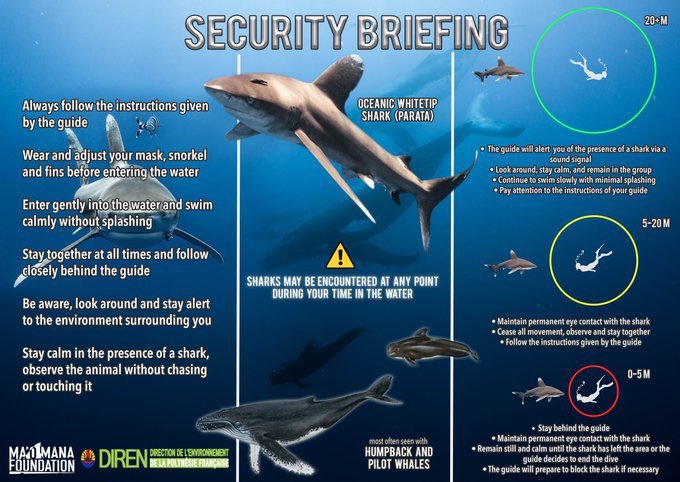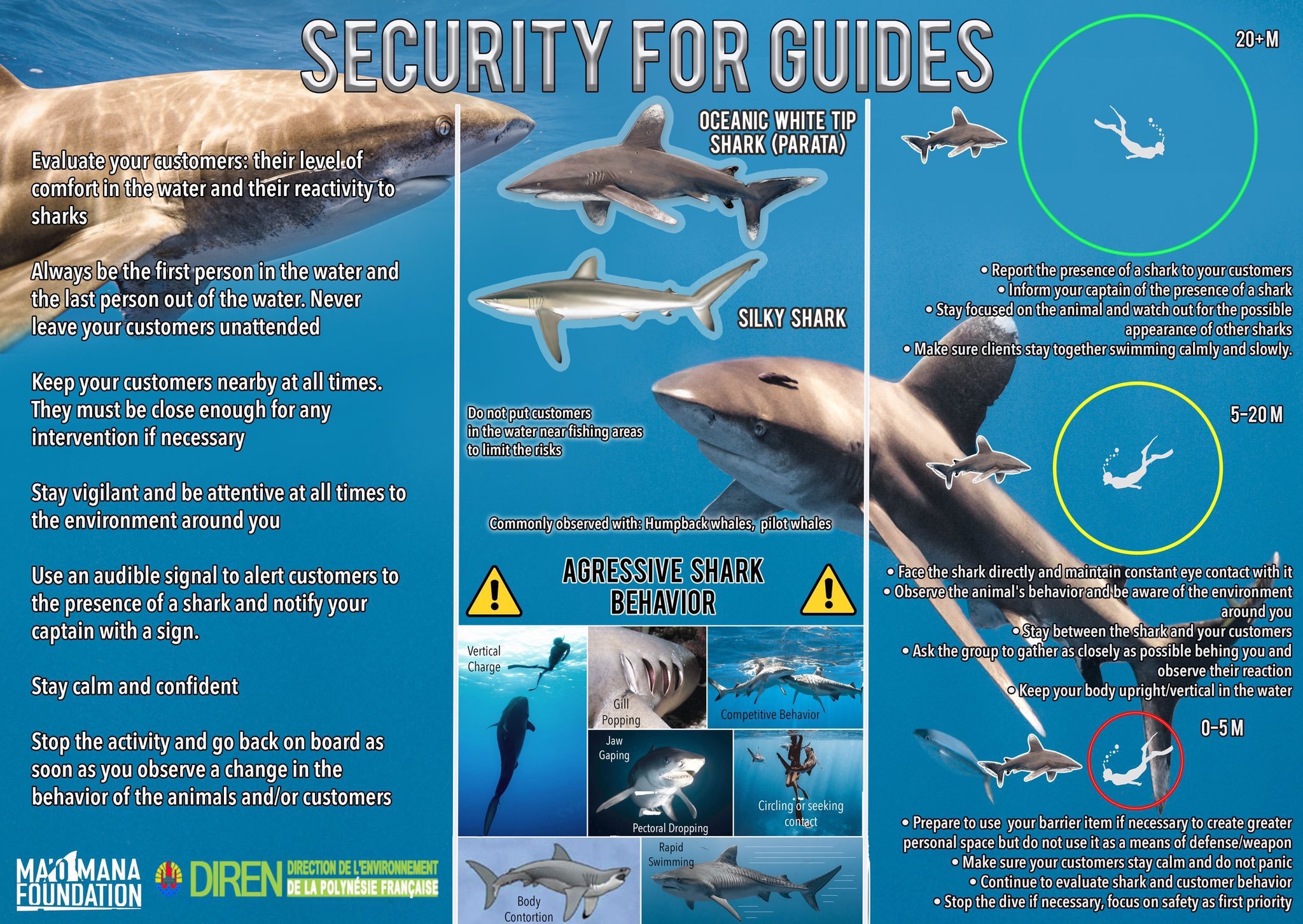Responsible & Safe Ecotourism Initiative
responsible ecotourism
As the popularity of ocean wildlife tourism increases, the number of commercial operators and people in the water with marine wildlife is also increasing. As responsible ecotourism operators it is the number one responsibility that the wildlife are treated with appropriate respect and precautions are taken to minimize impact on the animals as well as the prevention of negative human interactions. It is our responsibility to educate the public on sharks, their importance to the culture, their importance to the ecosystem, and to always promote a positive perception of these highly misunderstood predators. It is vital that all operators placing their guests in-water with sharks (or placing their guests in the habitat of sharks without intent for shark observations) have a deep understanding of shark behavior as well as proper training on safety protocol. We are working to train guides and operators that follow the code of conduct based on educational value of the tour (how much information is being given about the sharks biology/behavior/role in the environment/cultural value and respect), safety of the operation, welfare of the animals (no harassment), ecological sustainability and involvement in contributing to research and conservation. Another essential training aspect provided in partnership with local emergency service providers is training in trauma response in the event of shark incident.
Our goal is not only to promote responsible ecotourism but to build a community within ecotourism operators that is unified in their efforts to protect the sharks of French Polynesia.
Part of this training occurs through the DIREN partnered seminars hosted pre-whale season as well as training for the certificate required for local guides on shark behavior, preventative guest safety, and trauma response for encounters with sharks likely to occur during whale tours. Each vessel operating in the pelagic zone is provided with a French and English safety guideline pamphlet to remain focused on these initiatives and to conduct in depth briefings for their clients.





